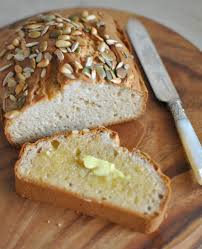For thousands of years we have consumed, cultivated and milled wheat, spelt, barley and rye. We have used it as a staple part of our diet with nourishing benefits. These gluten free substances were milled in a manner which were wholesome and simple, the milling process helped retain all the natural goodness.
Then in the industrial era the process changed. Many crops were protected with synthetic chemical based substances, Mechanical technologies were used to harvest and mill, all which increased the crop yield produced to keep up with consumer demand. Finally we learnt how to alter the genetics of these valuable substances for a lighter, fluffier bake. (click here for further details of the modern milling process)
 |
Roman
Stone mill and oven
|
Flour when mixed with water forms a cross linked network of proteins, this produces an elastic type dough helping the dough to rise.
When this protein is digested and exposed to the cells of the immune system of an individual with a sensitivity to gluten, there arises is a miss communication. The immunity cells mount an attack considering the protein to be a potential threat.
For those with coeliacs disease the gluten also attacks the walls of the digestive tract. The result of this is an over activity of the immune system, inflammation in the bowl causing the malabsorption of food and nutrients and the need for the digestive system to be cleared to remove the problem. This is why many coeliacs lose a lot of weight even if they are eating large amounts, the body empties itself before food can be properly processed.
Studies have also shown that those who do not have gluten sensitivities can also have some negative reactions to gluten (modern milled) including bloating, fatigue and stool inconsistencies.
Other studies have shown that many cases of neurological illness may be caused or exacerbated by gluten.
So how does a gluten free diet enter the world of sports. Well there is some controversy here. We must not forget that whole wheat products are beneficial to the body. Studies have been performed to compare the effects of gluten filled diets to gluten free diet in athletes (take a look at the link to see the results the gluten free athlete). Unless an athlete has a gluten sensitivity/ coeliacs there is no medical proof to suggest that a gluten free diet will improve their performance.
But here are some benefits which many athletes have reported
Weightloss/ feeling lighter on your feet
Increased strength
More energy
Mentally sharper
Better quality of sleep
Feeling fresher and more alert
More energy
Mentally sharper
Better quality of sleep
Feeling fresher and more alert
I think it is wise here to mention that when entering a gluten free diet athletes often turn to different types of food which also help improve overall health, packed with essential proteins and blood sugar stabilizers
Foods such as Lentils, chickpeas, various types of beans, gluten free porridge, brown rice, quinoa etc.
I am possibly bias towards the gluten free life as I have coeliacs disease myself. Since removing gluten completely from my diet (this includes vinegar made from barley......be careful gluten is hidden everywhere). My life has improved dramatically. especially the lifting of a debilitating mental fog. Removing even a small amount of gluten from your diet may not produce miracles but it can't hurt!
Foods such as Lentils, chickpeas, various types of beans, gluten free porridge, brown rice, quinoa etc.
I am possibly bias towards the gluten free life as I have coeliacs disease myself. Since removing gluten completely from my diet (this includes vinegar made from barley......be careful gluten is hidden everywhere). My life has improved dramatically. especially the lifting of a debilitating mental fog. Removing even a small amount of gluten from your diet may not produce miracles but it can't hurt!




No comments:
Post a Comment